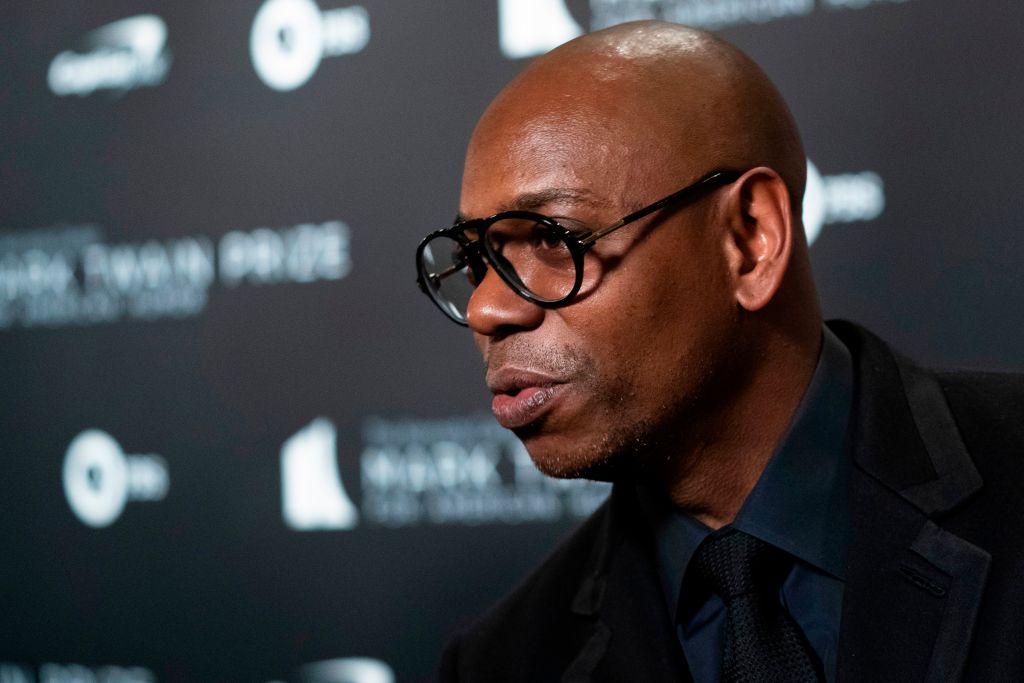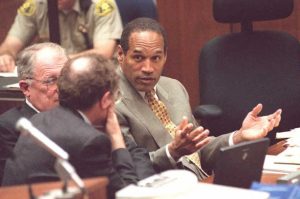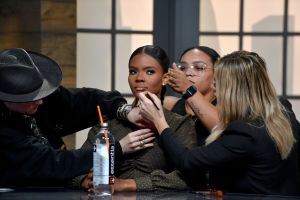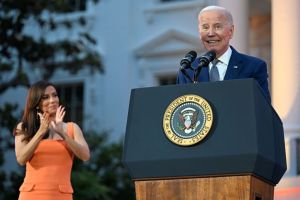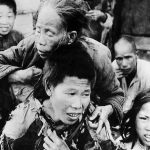Celebrity is a remarkably enduring and powerful form of prestige. Who can imagine a world without it? Celebrities begin as people, become brands, then expand into empires. We have celebrity restaurateurs who become celebrity chefs and celebrity chefs who become restaurateurs. We have celebrity spin doctors and celebrity CIA analysts. We have celebrity comedians and celebrity revolutionaries; they’re often interviewed by celebrity journalists. We have celebrity architects, celebrity tycoons and celebrity statesmen. We have celebrity children of celebrities; celebrity ballerinas; celebrity vegans; celebrity plumbers; celebrity murderers. For decades celebrity told society stories about itself, some ennobling, some disgraceful. ‘Fame’, the not-particularly-famous novelist Jarett Kobek once observed, is ‘the world’s last valid currency’.
Then new media developed and enhanced old media: YouTube and other platforms have created the world of the unfamous celebrity. Right now the person in the stool next to yours could have 689,000 subscribers, who happily watch him rate toilet cubicles, and you’d never know. Fame has been disrupted and democratized, in other words, like everything else.
At the Olympian heights of celebrity — we’re talking the Oprahs, the Streeps, the Eltons — this conformity of tone, expression, thought, response, gait and address is ordered around a set of mink-coat liberal platitudes, woke bromides and ‘Fuck Trump’ exhortations for political action.
But is this mechanical groupthink at last being dismantled? Recently, some celebrities have loudly left the safety of the reservation. In Dave Chappelle’s last Netflix special, in Ricky Gervais’s Golden Globes monologue, in Kanye West’s MAGA hat, some conservatives have seen the first warming beams of a new dawn. Is Bill Burr a conservative, asks a breathless Right; did Vince Vaughn shake hands with Trump? Does anybody on earth know what Jon Voight is talking about?
In Britain last week, a kulturkampf fracas broke out when an actor called Laurence Fox appeared a political panel show and didn’t weep with gratitude about the moment he confronted, then overcame his white privilege. For London’s venerable Daily Telegraph, this 40 or so minutes of television (little more than a snack really) ‘perfectly captured the backlash against stultifying wokeness’.
The temptation to group these disparate events and figures into a comprehensible, easy-to-digest moment or movement is understandable. It is a cute narrative: the Rise of The Celebrity Dissidents, who turn against their colleagues’ wokeness, just as the voting public all over the world turns its back on the traditional parties of the left.
It’s also amusing to watch progressive writers unleash their full arsenal in defense of the ‘essential’ right of multimillionaires to lecture ordinary people. The biting, patronizing response to West’s forays into politics, in particular, were a window into the souls of many liberals. People can have opinions, as long as they are the right opinions.
While it is nice to see bad ideas criticized and dipshit actors mocked, I think conservatives might want to ask slightly harder questions. Start with nouns, verbs, adjectives, pronouns. Women, men, white, black, gay, straight, trans, muslim, patriarchy, privilege, feminism, nationalism, obese, anxious — these words and many the others, as you well know, are a connotative battleground where you still might be gored after one bad tweet, one thoughtless word. Tell me, exactly how Dave Chappelle or Ricky Gervais, sheathed by narrenfreiheit, the freedom of the jester, will change this. How do they affect the universities, the HR departments, the courts, the corporations? They don’t, and they won’t.
For the sake of argument, let’s imagine that there is an overnight change in values. Suddenly, Joe Rogan is hosting the Oscars. Jordan Peterson replaces Dr Phil and Paul Joseph Watson is given a show on primetime. All celebrities, from James Corden to Solange Knowles, stop repeating vapid liberal talking points. Instead they repeat slightly less vapid conservative talking points. Would this be a better world? Would it even be helpful for conservatives? After all, the fact that celebrities supported Hillary Clinton in their droves made no difference to the outcome of that election. Was Brexit halted by the fact that David Beckham wrote a turgid Instagram post in support of Remain? In the recent UK general election, Hugh Grant busily campaigned for a slew of Remainer MPs and every single one of them failed to get elected. I would wager that most people prefer not to have celebrities’ opinions, especially about politics, forced on them.
The public dissent of some stars is not really the sign of a backlash against bad ideas. It’s another sign that the contract between celebrities, the media and the public that held for so long is falling to pieces. It was never a particularly good deal. In return for occasionally being entertaining (though less entertaining than, say, an afternoon reading Buddenbrooks) the celebrity superclass required worship, time, money, attention, devotion, love, gratitude and the right to tell you how to think and how to live. Occasionally celebrities would do charitable works for Africa, or battle against the climate emergency. They’d divert you with 15 late night shows where they nattered and chattered about themselves, at length. Celebrities, in fairness, were often hilarious. Only the humorless failed to laugh when the celebrity political scientist Fareed Zakaria met the celebrity singer Bono a couple of years ago. Zakaria then produced an article with the imperishable, unimprovable title: ‘I wanted to understand Europe’s populism. So I talked to Bono.’ Ha!
Bret Easton Ellis once said that being famous is fun for about a year, and then onerous forevermore. There must be something in that. Who could really bear it — the paparazzi, the paranoia, the inevitable self-pity — and retain anything approaching a sense of proportion? The truly Jupiterian megastars today have more in common with zoo animals than human beings, their much scrutinized glamour and obscene earnings little exchange for living the life of a Seaworld dolphin. Ellis, incidentally, is one of a dying breed that our new celebrity dissidents are trying hard to emulate: the Arsehole Genius.
Norman Mailer was an Arsehole Genius, so was Germaine Greer; Marlon Brando was another, so was the young John McEnroe. They could be left, right, ‘Left-Conservative’ (Mailer), apolitical or just plain annoying. Volcanic in style and unafraid to risk absurdity or reproach, the Arsehole Genius lived out a life of violent opposition to cliché or conformity of any kind. None of this added up to a career move: the Arsehole Genius literally couldn’t help it. In eras, like ours, of cultural aridity and cloying politeness they are led to the stocks, or — and this is far worse for their egos — simply ignored. Dave Chappelle and co can be clever, and they’re often arseholes, but they’re a very long way from being the geniuses we need.
